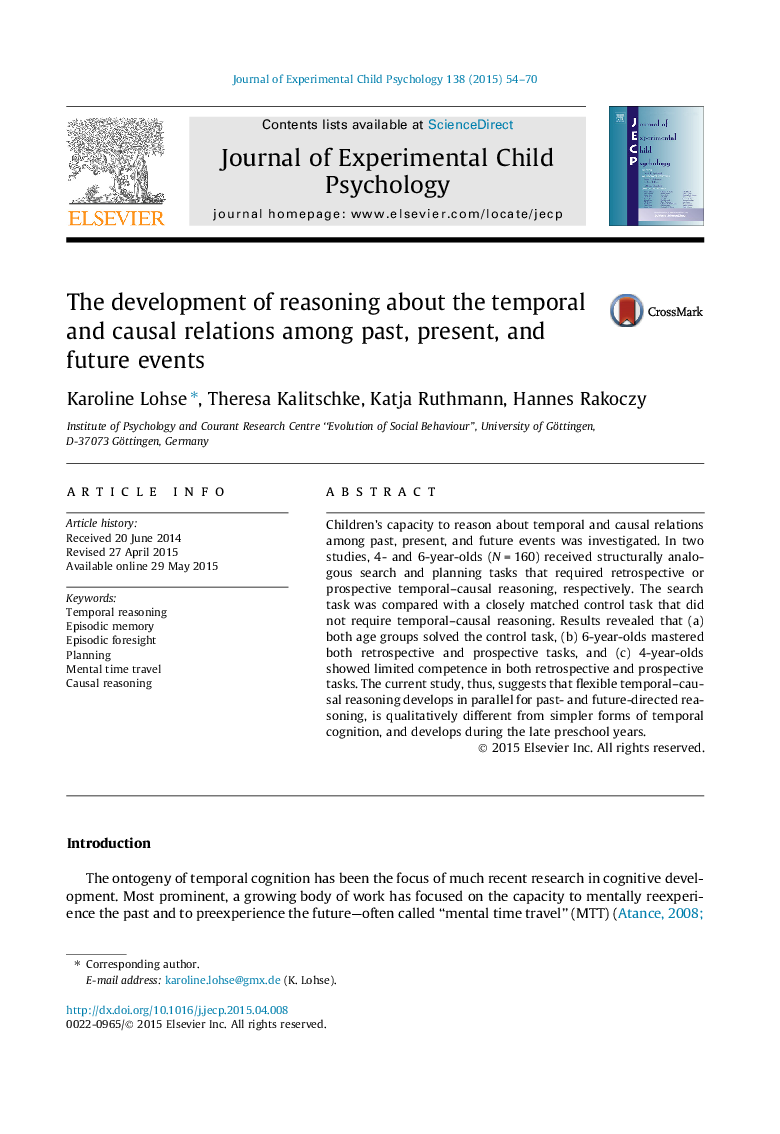| کد مقاله | کد نشریه | سال انتشار | مقاله انگلیسی | نسخه تمام متن |
|---|---|---|---|---|
| 917938 | 1473474 | 2015 | 17 صفحه PDF | دانلود رایگان |
• Investigation of 4- and 6-year-olds temporal–causal reasoning skills.
• Results suggest that children’s past and future reasoning skills develop in synchrony.
• Closely follows and expands findings from earlier research on children's temporal reasoning.
• Highlights and discusses the specific nature of limitations in 4-year-olds competence.
Children’s capacity to reason about temporal and causal relations among past, present, and future events was investigated. In two studies, 4- and 6-year-olds (N = 160) received structurally analogous search and planning tasks that required retrospective or prospective temporal–causal reasoning, respectively. The search task was compared with a closely matched control task that did not require temporal–causal reasoning. Results revealed that (a) both age groups solved the control task, (b) 6-year-olds mastered both retrospective and prospective tasks, and (c) 4-year-olds showed limited competence in both retrospective and prospective tasks. The current study, thus, suggests that flexible temporal–causal reasoning develops in parallel for past- and future-directed reasoning, is qualitatively different from simpler forms of temporal cognition, and develops during the late preschool years.
Journal: Journal of Experimental Child Psychology - Volume 138, October 2015, Pages 54–70
